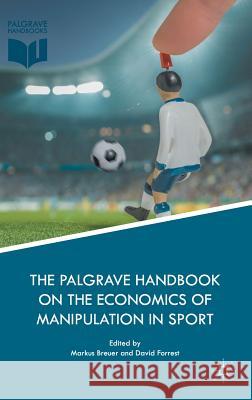The Palgrave Handbook on the Economics of Manipulation in Sport » książka
topmenu
The Palgrave Handbook on the Economics of Manipulation in Sport
ISBN-13: 9783319773889 / Angielski / Twarda / 2018 / 335 str.
The Palgrave Handbook on the Economics of Manipulation in Sport
ISBN-13: 9783319773889 / Angielski / Twarda / 2018 / 335 str.
cena 702,00 zł
(netto: 668,57 VAT: 5%)
Najniższa cena z 30 dni: 693,97 zł
(netto: 668,57 VAT: 5%)
Najniższa cena z 30 dni: 693,97 zł
Termin realizacji zamówienia:
ok. 20 dni roboczych.
ok. 20 dni roboczych.
Darmowa dostawa!
Kategorie:
Kategorie BISAC:
Wydawca:
Palgrave MacMillan
Język:
Angielski
ISBN-13:
9783319773889
Rok wydania:
2018
Wydanie:
2018
Ilość stron:
335
Waga:
0.66 kg
Wymiary:
23.39 x 15.6 x 2.06
Oprawa:
Twarda
Wolumenów:
01
Dodatkowe informacje:
Wydanie ilustrowane











